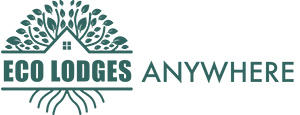Nestled in the heart of Eastern Tibet’s Kham region, Khampa Nomad Ecolodge stands as a serene sanctuary amidst the winter grazing lands of Tibetan yak herding nomads. This unique lodge is not just a retreat but a vibrant testament to traditional craftsmanship, natural materials, and the essence of Tibetan-style architecture, harmoniously powered by passive solar energy. The lodge serves as a communal hub where meals, featuring local, organic produce, are shared in a warm, family-style environment, fostering a sense of togetherness among visitors.
Their story
The journey of Khampa Nomad Ecolodge began in 2004 as a humble trekking company established by Angela Langford and her Tibetan husband. Over time, it evolved, embracing the principles of local traditional skills and eco-friendly practices, to become the Ecolodge it is today. As an American-Tibetan nomad family, they have always been dedicated to supporting the local community, offering activities and treks that not only honor but also financially support the local people.
Situated at an elevation of 3800 meters, in the winter pasture of the Genong Clan of Tibetan yak herders, the lodge is enveloped by majestic grassy hills that rise to 4500 meters. The changing seasons bring a unique charm to the area, with the presence of herders and yaks in the colder months, and their migration to higher pastures in the summer. Read more about them here.
Sustainability actions
Lowest impact construction and operation
- The lodge is built with local stone sourced from the nearby hill and with wood from the deep Yalong River Valley to the west.
- The logging is done sustainably in traditional style, with small intermittent clearings that allow easy regeneration. The small stone quarry we used is nearly invisible now, and houses a clan of nesting birds.
Highest level of energy efficiency
- They produce all of their own power using solar and wind. The house is heated mainly by passive solar, though in the coldest month we add heat using yak dung stoves.
- They use 100% LED lights and mainly low-energy appliances.
- In some extreme weather situations, hot water is limited in the showers, and they use a small wood-burning sauna for bathing.
Pioneer in waste management
- They have their own drinkable spring on the mountainside, which they developed to source water. Their area is rich in water in summer, and low in winter.
- Water heating is all solar, either direct or via solar-voltaics. They have a leach field for clean disposal of sewage, and a grey water system for showers and dishwashing water.
- They recycle glass, metal/aluminum, and plastic, by hauling it to the nearby city of Kangding when necessary. Paper is burned in the fires.
- Styrofoam, which they try to avoid but sometimes arrives anyway, is reused as insulation or sent off as packing material again.
- They minimize single-use plastic by using all reusable dishes and silverware (even for the coffee buyers who stop by outside).
- They buy minimal packaged food, eating fresh vegetable either purchased or from our own garden.
- They reuse plastic bags for shopping.
Using organic and chemical-free products
- Organic waste provides them much needed compost for the garden.
- They have full organic garden and greenhouse.
- They use mild dish soap and simple soda mixture for cleaning.
- They have their own yaks, which produce all of milk, cheese, and butter. The yaks are organically grown and roam the mountains freely on communal wild grasslands. In their area, no one slaughters their yaks for ethical reasons, and so they buy yak meat from a herder/farmer in an area around 50 kms away, where they do slaughter. This meat is also organic and free-range.
- They produce many vegetables organically on site. Fruit comes from the Luding Valley, about 100 kms away. Potatoes, wheat, and barley are organic, Tibetan grown in lower-altitude farming areas 20-30 kms away.
Actively protects nature and community
- Traditionally, the nomads here live very sustainably and manage their grasslands well (which is helped by the area being quite lush).
- They organize workshops for travelers about being nomad in Tibet by hiring active nomads as horse guides and workshop leaders.
- They do their best to educate all visitors, as well as to encourage local people to pick up trash themselves.
- They employ 100% local Tibetan staff, and they support other Tibetans interested in running similar businesses by offering tours and workshops on green design as well as hosting ideas.
- As more Tibetans across the Prefecture have started building guesthouses to try to benefit from the tourists, and Khampa Nomad Ecolodge became of prime example to follow. They provide tours and any support for fellow ecolodge owners, including detailed design as well as material and skilled labor sourcing.
Most Popular Activities near Khampa Nomad Ecolodge
- Nomad Life Workshop/Tentstay,
- Full-Day Grassland Horse Ride
- Hiking Alone or Guided
- Multi-day Treks or Horse Rides
- Tibetan Painting Workshop
